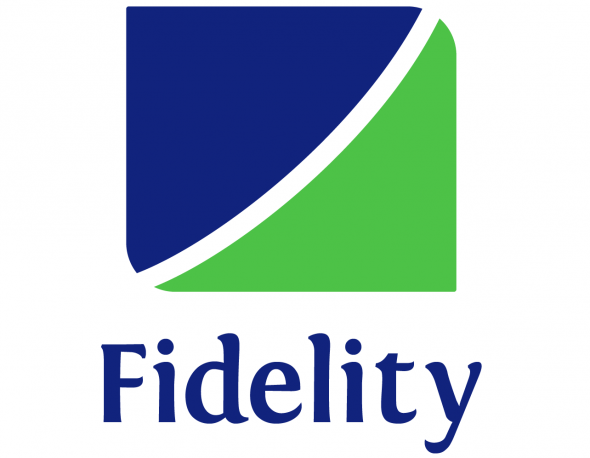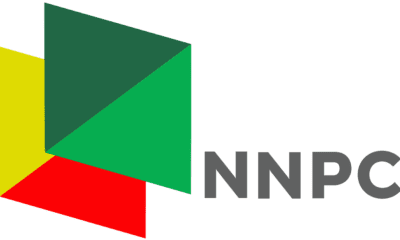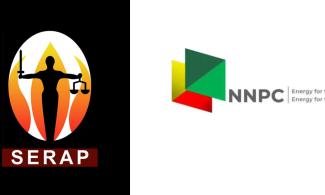Top Story
NNPC, Customs DG disagree on 98m litres per day PMS consumption
…As NNPC says 68m litres is average daily PMS supply
By Ariemu Ogaga and Uthman Salami
Contrary to the recent revelation by the Director General of the Nigeria Customs Col. Hameed Ali, who had earlier questioned why the company would be allowing 98 million litres of Premium Motor Spirit (PMS), otherwise known as Petrol, to be lifted when the actual consumption figure is 60 million litres, the Nigerian National Petroleum Company limited said the average daily PMS supply remained 68 million litres from January to August 2022. In a press release signed by the Group General Manager, Group Public Affairs Division, NNPC LTD. Garba Deen, which was obtained by the Nigerian NewsDirect yesterday, said the total volume of Petrol imported into the country was 16.46 billion litres, an average supply of 68 million litres per day in the first eight months of the year 2022.
This was a little lower compared to what the company had imported in the year 2021, which stood at 22.35 billion litres, an average supply of 61 million litres per day.
Recall that the Customs Director General Col. Hameed Ali had alleged the company was allowing the lifting of Petrol more than what the country consumes.
The DG said this when he appeared before the House Committee on Finance for the hearing on the Medium Term Expenditure Framework (2023 – 2025).
He dismissed claims that smuggling of PMS contributes to the huge amounts being paid for subsidy.
He said “The issue is not the smuggling of petroleum,” Col Ali said, “I have always argued this with NNPC. If we are consuming 60 million litres of petrol per day by their own computation, why in the world would you allow the lifting of 98 million litres per day?
“That computation, to me, is not believable, because scientifically you cannot tell me that if I fill my tank today, tomorrow I will fill my tank with the same quantity of fuel. And if I’m running a petrol station today, if I go to Minna depot and lift, and I’m taking to Kaduna, I may reach Kaduna in the evening and offload that product; there’s no way I could have sold that petrol for you to account that that has been expended.
“So how do we get to 60 million every day? If you say this petrol is smuggled, if you release 98 million litres, and then we use 60 million litres, the balance will be 38 million litres.
“How many trucks will carry 38 million litres? Every day. That’s almost 500. Which road are they following? Where are they carrying this thing to?”
However, in a press release issued yesterday, NNPC Ltd noted that, contrary to Col. Ali’s claims, “The average daily evacuation (Depot truck out) from January to August 2022 stands at 67 million litres per day as reported by the Nigerian Midstream and Downstream Petroleum Regulatory Authority (NMDPRA).”
“Daily Evacuation (Depot load outs) records of the NMDPRA do carry daily oscillation ranging from as low as 4 million litres to as high as 100 million litres per day,” the statement added.
Owing to rising crude oil prices and PMS supply costs above PPPRA (now NMDPRA), oil marketing companies’ (OMCs) had withdrawn from PMS import since the fourth quarter of 2017, leaving the NNPC LTD. the supplier of the product.
The statement partly read, “NNPC Limited also noted the average Q2, 2022 international market determined landing cost was US$1, 283/MT and the approved marketing and distribution cost of N46/litre.
“The combination of these cost elements translates to retail pump price of N462/litre and an average subsidy of N297/litre and an annual estimate of N6.5 trillion on the assumption of 60 million litres daily PMS supply. This cost will continuously be adjusted by market and demand realities.
“NNPC Ltd shall continue to ensure compliance with existing governance framework that requires participation of relevant government agencies in all PMS discharge operations, including Nigerian Ports Authority, Nigerian Midstream and Downstream Petroleum Regulatory Authority, Nigerian Custom Service, NIMASA and all others.
“NNPC Ltd recognizes the impact of maritime and cross border smuggling of PMS on the overall supply framework, NNPC also acknowledges the possibilities of other criminal activities in the PMS supply and distribution value chain.
“As a responsible business entry, NNPC will continue to engage and work with relevant agencies of the Government to curtail smuggling of PMS and contain any other criminal activities.
“We will continue to deliver on our mandate to ensure energy security for our country with integrity and transparency. We invite any forensic audit of the PMS and subsidy management framework of the NNPC.”
Reacting to the development on Sunday, an oil and gas expert and Managing Partner, BBH Consulting, Barr. Ameh Madaki said the controversy surrounding Premium Motor Spirit (PMS) consumption figures will not go away in a hurry.
He said, “The opaqueness surrounding the issue of subsidy will not go away in a hurry. Since subsidy claims are based on consumption figures, it will always be beneficial to the subsidy cabal to inflate the figures of PMS consumption and this is expected to continue into the foreseeable future.
“The logic behind the analysis by the CG of Customs is clear: where are the trucks to load that quantity of PMS on a daily basis, and the roads where those trucks ply, given the abysmal state of our roads?
“Until NNPC addresses these issues, their push back will not carry any weight at all.
“It is not rocket science to ascertain the quantity of products consumed in Nigeria, and there is readily available technology that can be used to do this, if we are serious about getting it done.”
Top Story
NDIC increases deposit insurance coverage for financial institutions


…New review ensures safety of depositors’ funds — MD
…Warn depositors against patronising unregistered operators
By Matthew Denis, Abuja
The Nigeria Deposit Insurance Commission (NDIC) has announced an increase in maximum deposit insurance coverage for financial institutions in the country.
The new review was announced at a press briefing held at the NDIC headquarters in Abuja.
The Managing Director of the NDIC, Mr. Bello Hassan revealed that the increase of the maximum deposit insurance coverage from N500,000 to N5,000,000, would provide full coverage of 98.98percent of the total depositors compared with the current cover of 89.20 percent.
The MD said, “Findings indicate that high percentages of depositors ranging from 89.20 percent to 99.99 percent were fully insured under the maximum deposit insurance coverage levels across different bank categories (DMBs, PMBs, MFBs, and PSBs), meanwhile, a substantial portion of the total value of deposits, remain uninsured.
“We need to stress at this juncture that high levels of uninsured deposits pose a risk of bank runs. Indeed, the International Association of Deposit Insurers (IADI) Brief No. 9 of 2023 that examined the recent bank failures in the United States of America and Switzerland, concluded that, high levels of uninsured deposits in insured institutions might increase the likelihood of bank runs with dire impact on the stability of the financial system,” he explained.
Mr. Bello stressed “that based on these considerations, and in line with our commitment to enhancing depositors’ protection, public confidence, financial inclusion, and stability of the financial system, I am pleased to announce that the NDIC’s Interim Management Committee (IMC), during its 18th meeting held on April 24th and 25th, approved an 3 increase in the maximum deposit insurance coverage levels for all licensed deposit-taking financial institutions with immediate effect.
“The adjustments are as follows: i. Deposit Money Banks (DMBs) The increase of the maximum deposit insurance coverage from N500,000 to N5,000,000, would provide full coverage of 98.98 percent of the total depositors compared with the current cover of 89.20 percent.
“In terms of the value of deposit covered, the revised coverage would increase the value of deposits covered by deposit insurance to 25.37 percent compared with the current cover of 6.31 percent of total value of deposits.”
The NDIC boss explained that at the Microfinance Banks (MFBs) the increase of the maximum deposit insurance coverage from N200,000 to N2,000,000, would provide full coverage of 99.27 percent of the total depositors compared with the current level of 98.76 percent and would increase the value of deposits covered by deposit insurance to 34.43 percent compared with 14.38 percent of total value of deposit, currently covered.
He revealed that Primary Mortgage Banks (PMBs) The increase of the maximum deposit insurance coverage from N500,000 to N2,000,000 would provide full coverage of 99.34 percent of the total depositors compared with the current 97.98 percent and would increase the value of deposits covered by deposit insurance to 21.04 percent compared with 10.77 percent of total value of deposit, currently covered.
”While the Payment Service Banks (PSBs) the increase of the maximum deposit insurance coverage from N500,000 to N2,000,000 would provide full coverage of 99.98 percent of the total number of depositors and would increase the value of deposits covered by deposit insurance to 43.10percent of the total value deposits from the current cover of 40.60 percent.”
“Subscribers of Mobile Money Operators: The increase of the maximum Pass-through deposit insurance coverage from N500,000 to N5,000,000 per subscriber per MMO as the applicable coverage level for depositors of DMBs. 4 7.0 I must emphasise that, the revised deposit insurance coverage has balanced the NDIC’s goals of deposit protection and financial system stability with incentives for depositors to practice market discipline and prevent banks from unnecessary risk-taking and moral hazard. Consideration was given to ensure that the coverage was limited but adequate enough to protect a large number of depositors and credible enough to prevent the destabilizing effect of bank runs,” he said.
Speaking further, Bello said the adoption of the revised maximum deposit insurance coverage is supported by the Corporation’s current funding, represented by the balances in the various Deposit Insurance Funds (DIFs), expected annual premium collection, enhanced supervision that would reduce the likelihood of bank failures, effective bank resolution frameworks and other funding arrangements provided by the NDIC Act No. 33 of 2023.
He buttressed further by noting, “I would like to reaffirm the NDIC’s unwavering commitment to protecting depositors and contributing to the stability of the financial system. These adjustments to the maximum deposit insurance coverage reflect our dedication to adapt and evolve in response to the changing landscape of the financial industry, and we remain steadfast in our pursuit of a secure and resilient banking environment for all.”
The MD also advised depositors to patronise only licensed and registered financial operators by the Central Bank and NDIC to avoid falling prey to mouth-watering Fintech operators who deceive customers with a lot of incentives and high interest rates.
Top Story
Minimum wage: Governors await committee decision, assure workers of increased wages


The 36 states Governors of Nigerian states have stated that they are awaiting the decision of the 37-member tripartite committee inaugurated on the National Minimum Wage before taking an action on minimium wage.
Recall that the Federal Government had earlier set up a committee to look into the demands of the Organised Labour regarding measures to cushion the effects of the removal of fuel subsidy.
Edo State has since go on to increase her minimium wage to N70,000 while other Governors have initiated wage awards for workers in their respective states.
In a statement signed yesterday by the Nigeria Governors Forum (NGF) Chairman and Governor of Kwara State, AbdulRahman AbdulRazaq, at the end of the virtual meeting held Wednesday night, the state executives disclosed that they were committed to looking into issues bordering on the remuneration of state judicial officers and the infrastructure of the courts.
The 36 state governors under the aegis of the NGF said that they celebrate with workers across the country for their dedication to service and patience, as all have worked with the Federal Government, labour, the organised private sector, and relevant stakeholders in arriving at an implementable national minimum wage.
According to the governors, while they acknowledge various initiatives adopted recently by way of wage awards and partial wage adjustments, it was imperative to state that the 37-member tripartite committee inaugurated on the National Minimum Wage was still in consultation and yet to conclude its work, just as they said that they would remain committed to the process and promise that better wages would be the invariable outcome of their ongoing negotiations.
The statement read, “We, members of the Nigeria Governors’ Forum (NGF), at our meeting held today, deliberated on various issues of national importance.
“The Forum celebrates with workers across the country their dedication to service and patience as we work with the Federal Government, labour, organised private sector, and relevant stakeholders to arrive at an implementable national minimum wage.
“While we acknowledge various initiatives adopted recently by way of wage awards and partial wage adjustments, it is imperative to state that the 37-member tripartite committee inaugurated on the National Minimum Wage is still in consultation and yet to conclude its work.
“As members of the committee, we are reviewing our individual fiscal space as state governments and the consequential impact of various recommendations to arrive at an improved minimum wage we can pay sustainably. We remain committed to the process and promise that better wages will be the invariable outcome of ongoing negotiations.
“Members received the outgoing Country Director, Mr. Shubham Chadhuri, and the incoming Country Director, Mr. Ndiame Diop, of the World Bank, to discuss the Bank’s vision for transitioning. Mr. Chadhuri appreciated the Forum for the strategic role it continues to play in coordinating collective action for developmental change.
“He applauded the non-partisan character of the Forum, the professionalism of its Secretariat, and state governments’ commitment to mutual accountability mechanisms such as performance-based financing interventions by the Bank. Members expressed confidence in the choice of Mr. Diop to lead the collaboration going forward and look forward to a sustained and deepened relationship.
“The Forum discussed the revised National Policy on Justice (2024–2028) from the just concluded National Summit on Justice on 24th & 25th April 2024. Members agreed to consider the submissions from the summit as may concern their individual states, including recommended legal amendments, administrative improvements, and policies to strengthen the justice sector. Also, the Forum committed to looking into issues bordering on remuneration of state judicial officers and the infrastructure of the courts.”
“The Forum received a presentation from the National Human Capital Development (HCD) Programme—Core Working Group Secretariat, led by Ms. Rukaiya El-Rufai and Dr. Ahmad Abdulwahab. Both highlighted the marginal progress made by states and its contribution to Nigeria’s Human Development Index (HDI), especially across health, nutrition, education, and labour force participation.
“Having reviewed the previous program design and national strategy, a revised governance and implementation roadmap was proposed to scale up impact and ensure sustainability. Members pledged to support the effective domestication of proposed revisions to the national HCD strategy.
“Members received a briefing from Mrs. Oyinda Adedokun, Program Manager, State Action on Business Enabling Reforms (SABER) Federal Ministry of Finance Programme Coordination Unit.
“The briefing highlighted states’ performance in implementing advocated reforms relating to land administration; regulatory framework for private investment in fiber optic infrastructure, services provided by investment promotion agencies and public-private partnership units; efficiency and transparency of government-to-business services, under the World Bank financed program.
“The Forum commiserated with the Governors of Rivers State, H.E. Siminalayi Fubara, and Ogun State, H.E. Prince Dapo Abiodun, over the petrol tanker explosion and gas explosion that occurred on April 26th and 27th, 2024, respectively. Members called for proper maintenance of trucks, especially those fitted to convey Compressed Natural Gas (CNG), and recommended appropriate training for truck drivers.
“On enforcement of regulations, members resolved to engage relevant Ministries, Departments, & Agencies (MDAs) in order to align the activities of federal regulators with the operations of officials at the sub-national level.”
Top Story
Fidelity Bank records 120.1% growth in PBT to N39.5bn in Q1, 2024


In line with its upward growth trajectory, leading financial institution, Fidelity Bank Plc, has posted an impressive 120.1 percent growth in Profit Before Tax from N17.9bn at the end of Q1 2023 to N39.5bn for Q1 2024. This was made known in the Bank’s unaudited financial statements released on the issuer portal of the Nigerian Exchange (NGX) on Tuesday, 30 April 2024.
According to the statement, Gross Earnings increased by 89.9 percent yoy to N192.1bn from N101.1bn in Q1 2023. The increase was led by a combination of interest income (90.7 percent yoy) and non-interest income (84.0 percent yoy). Growth in interest income was primarily spurred by a higher yield environment and strong earning assets base, while the increase in non-interest income was led by double-digit growth in account maintenance charges, FX-related income, trade, banking services, and remittances, supported by increased customer transactions.
Commenting on the results, Nneka Onyeali-Ikpe, MD/CEO, Fidelity Bank Plc stated, “We are pleased to report another quarter of strong financial performance driven by our strategic focus on customer-centricity, digital innovation and operational excellence. Despite the challenging macroeconomic environment, we remained resilient and agile, delivering double-digit growth on key income lines while advancing our business sustainability agenda.”
In the period under review, the bank grew Net interest income grew by 89.5 percent yoy to N99.6bn from N52.6bn in Q1 2023, driven by interest and similar income as the yield on financial instruments improved to 14.7 percent from 10.1 percent in Q1 2023 (2023FY: 11.6 percent). In line with the steady rise in interest rates through the year, average funding cost increased by 80bps ytd to 5.2 percent. However, NIM came in at 8.8 percent compared to 8.1 percent in 2023FY, as increased yield on earning assets surpassed funding cost to 15.1 percent from 13.3 percent in Q1 2023 (2023FY: 13.5 percent).
Similarly, Total Deposits increased by 17.2 percent ytd to N4.7tn from N4.0tn in 2023FY, driven by double-digit growth across all deposit types (demand, savings and term). Net Loans and Advances increased by 21.2 percent to N3.7tn from N3.1tn in 2023FY.
“Beginning the year on this inspiring note reaffirms our strategy of helping individuals to grow, inspiring businesses to thrive and empowering economies to prosper. We are committed to our guidance as we build a more resilient business franchise with a well-diversified earnings base in 2024,” explained Onyeali-Ikpe.
Ranked as one of the best banks in Nigeria, Fidelity Bank is a full-fledged customer commercial bank with over 8.5 million customers serviced across its 251 business offices in Nigeria and the United Kingdom as well as on digital banking channels.
-
capital market2 years ago
Rt.briscoe, FBNH, Others halts negative performance of stock market
-
Finance3 months ago
Court orders Sen. Victor Umeh to repay N136m bank debt to AMCON
-



 Abuja Update2 months ago
Abuja Update2 months agoUNDP, FG partnership needed to achieve inclusion, equity- Minister
-
Abuja Update1 month ago
Banks drive stock market performance with N147bn gain
-



 Business1 week ago
Business1 week agoTingo Group unveils Tingo Electric, Tingo Cola drink at Lagos launch
-



 Health2 weeks ago
Health2 weeks agoCapacity training will reduce migration of health workers- NPHCDA
-
News4 months ago
Oil thieves sponsoring malicious media campaign against Navy – Spokesman
-



 Infotech1 month ago
Infotech1 month agoWorld Backup Day: NITDA urges Nigerians to ensure backup of data












